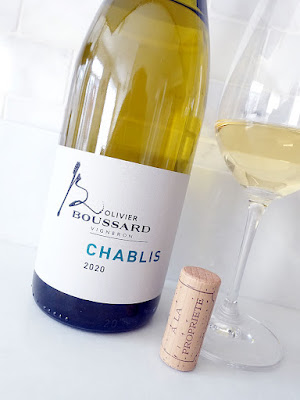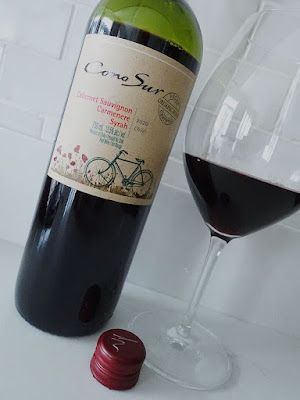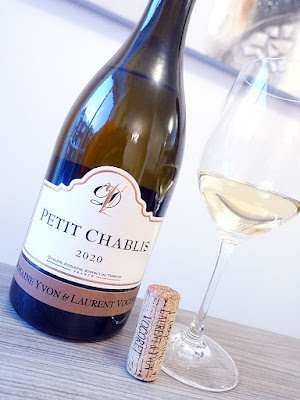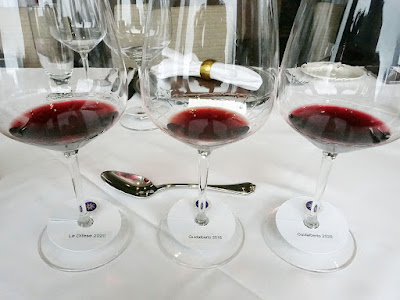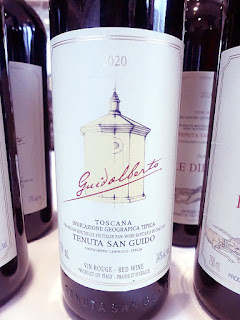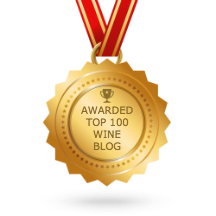red wine review is the latest vintage of a lovely, consistently well-made Australian Cabernet Sauvignon that arrived at the LCBO last month in the LCBO VINTAGES New Release Collection.
It is produced by Wakefield Wines, a well-respected winery situated in the Clare Valley wine region of South Australia. The family winemaking business was established in 1969 by Bill Taylor Sr. He was inspired by the producers of Bordeaux and had a vision to craft estate wines that rival the best in the world. In Australia and New Zealand, they trade under their family name, Taylors Wines, but here in Canada and abroad, the wines are marketed under the Wakefield Wines brand.
When the Taylor family established their wine business, they wanted to create proper "old world" style estate wines, which are by definition when both the vineyards and winery are in the same location. This approach allowed the Taylor family to have ultimate control over the vineyards, winery, and even the bottling of the wines. The first wines they crafted were this Estate Cabernet Sauvignon, and an Estate Shiraz. These days, each wine is still crafted and bottled at the estate, but all of the fruit is not grown on the property. This is mainly due to the popularity of the wines - they need more fruit to meet demand, but also because fruit from other regions can be of higher quality.
Today, Wakefield Wines is led by the grandsons of Bill Taylor Sr. - brothers Mitchell, Justin, and Clinton, who represent the third generation of the family. The commitment from each generation of the family to the way the wines are crafted has earned the Taylors an enviable reputation and contributed to their continued success. Their love for winemaking, keen eye for detail, and commitment to excellence have made Wakefield Wines a renowned producer of top Australian wines.
The Taylor family is also committed to ensuring that they function in a responsible and sustainable manner on both land and sea. While their strong connection to the land is evident, their connection to the sea is equally strong, starting with their unique seahorse emblem that adorns each bottle of wine. Nationally and globally, the Taylor family has partnered with two organisations that are working to protect seahorses. On land, they favour innovative techniques to improve energy efficiency, water conservation, and packaging, as well as prevent or eliminate the production of waste or pollution. Their goal as a company is to apply best practice principles in environmental management which promote biodiversity to enhance sustainable business activities and products.
I've had the pleasure of tasting quite a few vintages of this delicious Cabernet Sauvignon, going back to at least the 2016 vintage. This wine is traditionally crafted with fruit exclusively from the Clare Valley. However, fruit from Limestone Coast played a minority role in the final blend of the 2019 Wakefield Estate Cabernet Sauvignon. For this vintage, the wine is still 100% Cabernet Sauvignon, but Limestone Coast fruit plays a major role with 67% Limestone Coast and 33% Clare Valley fruit.
The Limestone Coast zone is approximately 400 km south of the Clare Valley and includes, among others, the winegrowing regions of Coonawarra (one of the finest regions for Cabernet Sauvignon) and Padthaway. In 2020, the Limestone Coast zone produced small quantities of high quality fruit due to a cool spring that resulted in small berries with great fruit concentration and lovely tannins. Warm days and cool nights also provided the perfect ripening conditions. Let's see how this 2020 Cabernet Sauvignon from Australia is tasting tonight...
100% Cabernet Sauvignon that was matured for up to 12 months in used French oak barrels, with half in 2 year old barrels and the remainder in 3 year old barrels, prior to final blending and bottling. Elegantly fragrant, medium-high intensity aromatics offer attractive minty cassis, black currant, tomato leaf, and herbs with a savoury, earthy core, plus some oak spice and cocoa notes. It's medium-full bodied with fresh, lively acidity that lifts the minty, cassis, black currant, tomato leaf, and herbal flavours that become savoury with earthy and cocoa notes on the gently tangy mid-palate. Smooth, refined tannins are well-structured. Clean and well-balanced throughout with very good acid structure. Earthy, cedary oak, and cocoa with touches of mineral, plus some tangy notes on the long, well-structured finish. Enjoy this highly recommended buy over the next 5+ years. Score: 89 pts
Many other lovely wines from the Wakefield Wines portfolio are available at the LCBO and through their Agent - Profile Wine Group.
It is produced by Wakefield Wines, a well-respected winery situated in the Clare Valley wine region of South Australia. The family winemaking business was established in 1969 by Bill Taylor Sr. He was inspired by the producers of Bordeaux and had a vision to craft estate wines that rival the best in the world. In Australia and New Zealand, they trade under their family name, Taylors Wines, but here in Canada and abroad, the wines are marketed under the Wakefield Wines brand.
When the Taylor family established their wine business, they wanted to create proper "old world" style estate wines, which are by definition when both the vineyards and winery are in the same location. This approach allowed the Taylor family to have ultimate control over the vineyards, winery, and even the bottling of the wines. The first wines they crafted were this Estate Cabernet Sauvignon, and an Estate Shiraz. These days, each wine is still crafted and bottled at the estate, but all of the fruit is not grown on the property. This is mainly due to the popularity of the wines - they need more fruit to meet demand, but also because fruit from other regions can be of higher quality.
Today, Wakefield Wines is led by the grandsons of Bill Taylor Sr. - brothers Mitchell, Justin, and Clinton, who represent the third generation of the family. The commitment from each generation of the family to the way the wines are crafted has earned the Taylors an enviable reputation and contributed to their continued success. Their love for winemaking, keen eye for detail, and commitment to excellence have made Wakefield Wines a renowned producer of top Australian wines.
The Taylor family is also committed to ensuring that they function in a responsible and sustainable manner on both land and sea. While their strong connection to the land is evident, their connection to the sea is equally strong, starting with their unique seahorse emblem that adorns each bottle of wine. Nationally and globally, the Taylor family has partnered with two organisations that are working to protect seahorses. On land, they favour innovative techniques to improve energy efficiency, water conservation, and packaging, as well as prevent or eliminate the production of waste or pollution. Their goal as a company is to apply best practice principles in environmental management which promote biodiversity to enhance sustainable business activities and products.
I've had the pleasure of tasting quite a few vintages of this delicious Cabernet Sauvignon, going back to at least the 2016 vintage. This wine is traditionally crafted with fruit exclusively from the Clare Valley. However, fruit from Limestone Coast played a minority role in the final blend of the 2019 Wakefield Estate Cabernet Sauvignon. For this vintage, the wine is still 100% Cabernet Sauvignon, but Limestone Coast fruit plays a major role with 67% Limestone Coast and 33% Clare Valley fruit.
The Limestone Coast zone is approximately 400 km south of the Clare Valley and includes, among others, the winegrowing regions of Coonawarra (one of the finest regions for Cabernet Sauvignon) and Padthaway. In 2020, the Limestone Coast zone produced small quantities of high quality fruit due to a cool spring that resulted in small berries with great fruit concentration and lovely tannins. Warm days and cool nights also provided the perfect ripening conditions. Let's see how this 2020 Cabernet Sauvignon from Australia is tasting tonight...
Tasting Note:
WAKEFIELD ESTATE CABERNET SAUVIGNON 2020 - Limestone Coast / Clare Valley, South Australia (#744235) (XD) - $19.95100% Cabernet Sauvignon that was matured for up to 12 months in used French oak barrels, with half in 2 year old barrels and the remainder in 3 year old barrels, prior to final blending and bottling. Elegantly fragrant, medium-high intensity aromatics offer attractive minty cassis, black currant, tomato leaf, and herbs with a savoury, earthy core, plus some oak spice and cocoa notes. It's medium-full bodied with fresh, lively acidity that lifts the minty, cassis, black currant, tomato leaf, and herbal flavours that become savoury with earthy and cocoa notes on the gently tangy mid-palate. Smooth, refined tannins are well-structured. Clean and well-balanced throughout with very good acid structure. Earthy, cedary oak, and cocoa with touches of mineral, plus some tangy notes on the long, well-structured finish. Enjoy this highly recommended buy over the next 5+ years. Score: 89 pts
Many other lovely wines from the Wakefield Wines portfolio are available at the LCBO and through their Agent - Profile Wine Group.





